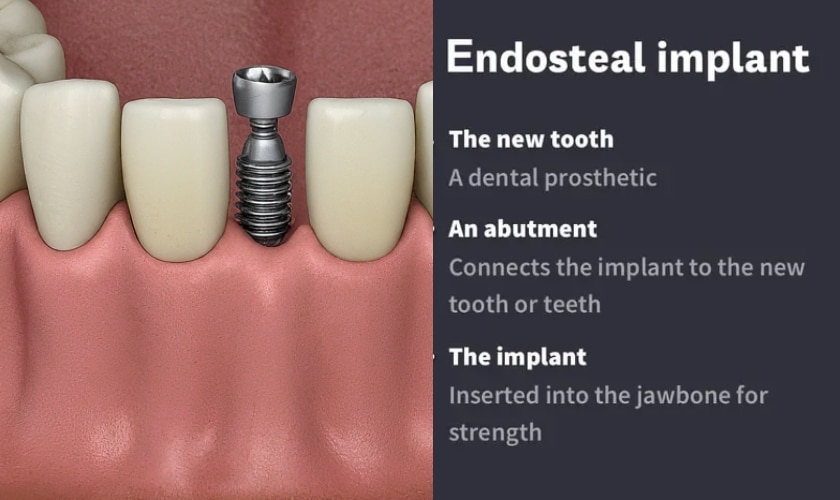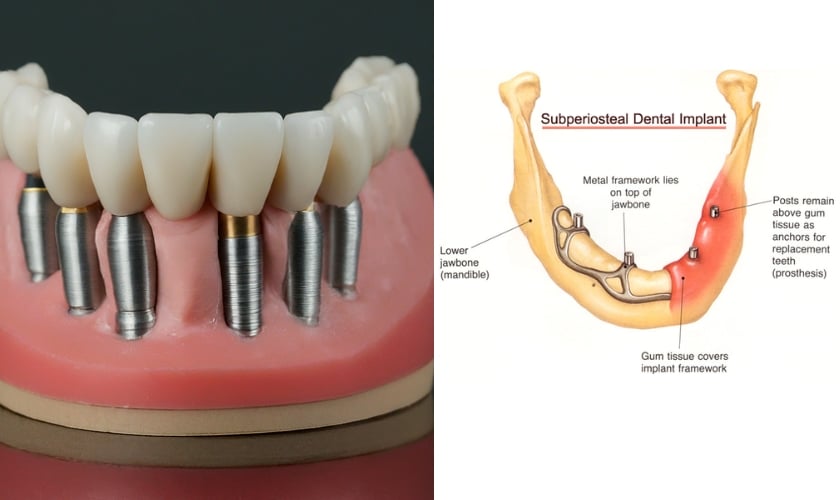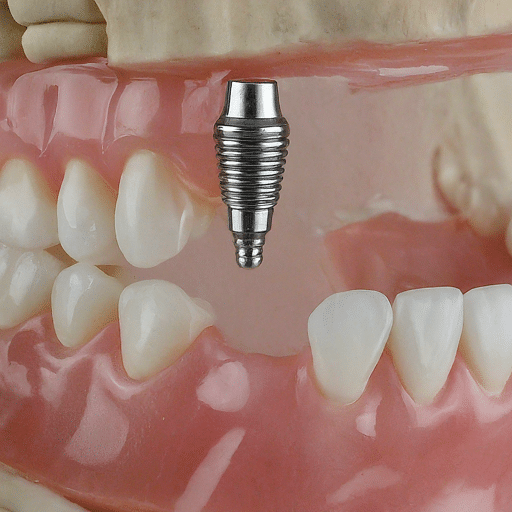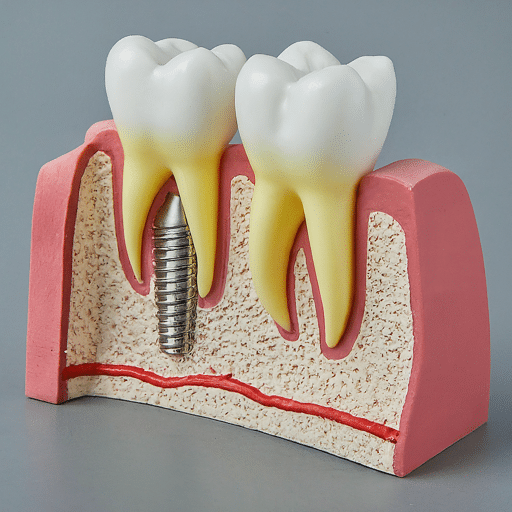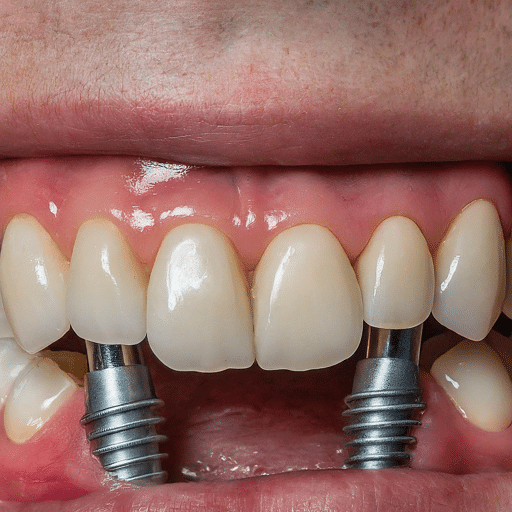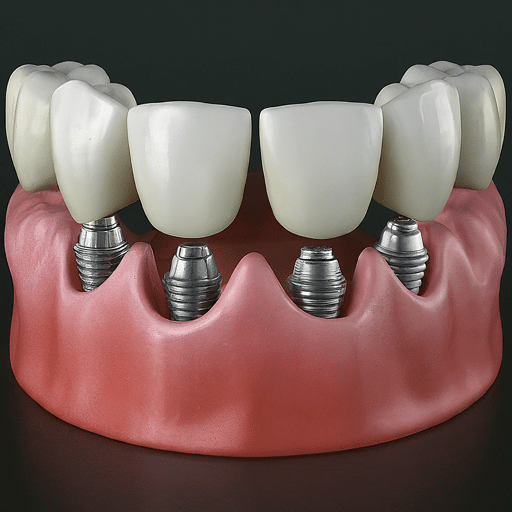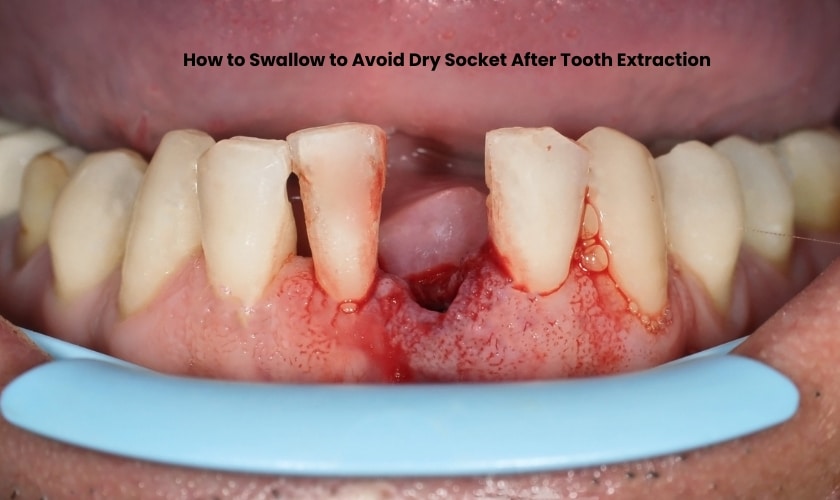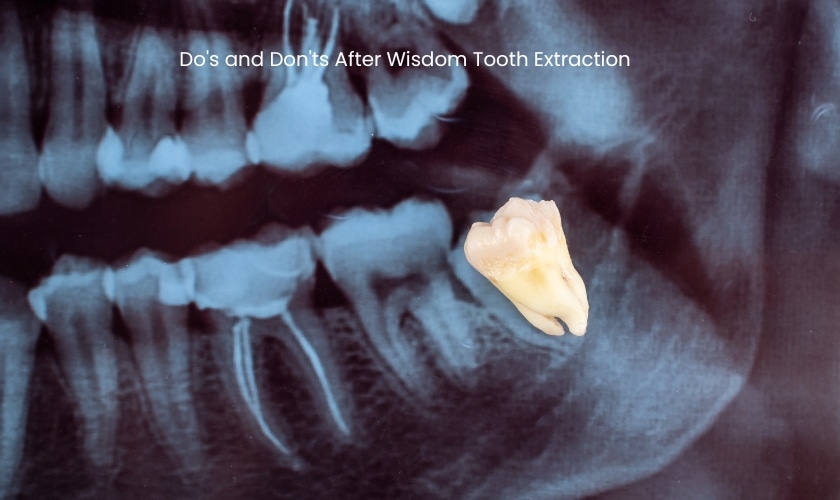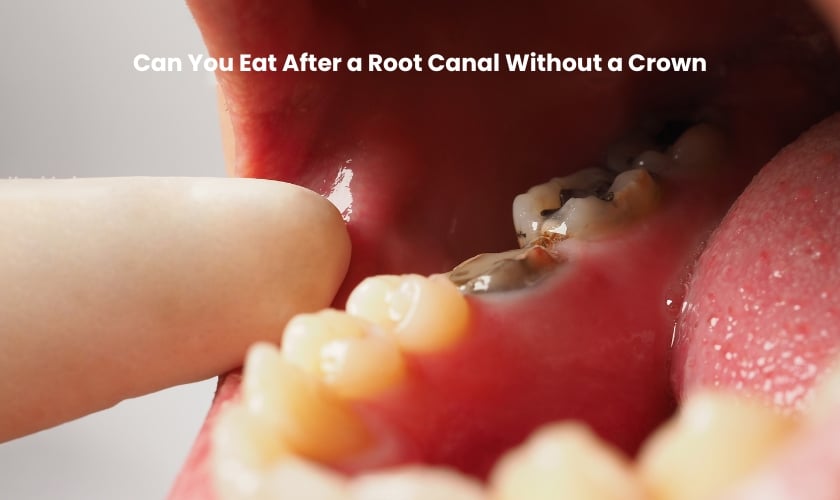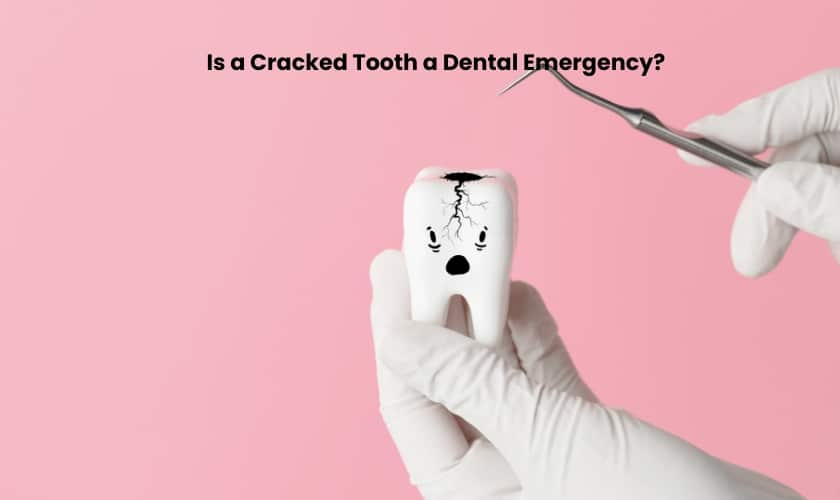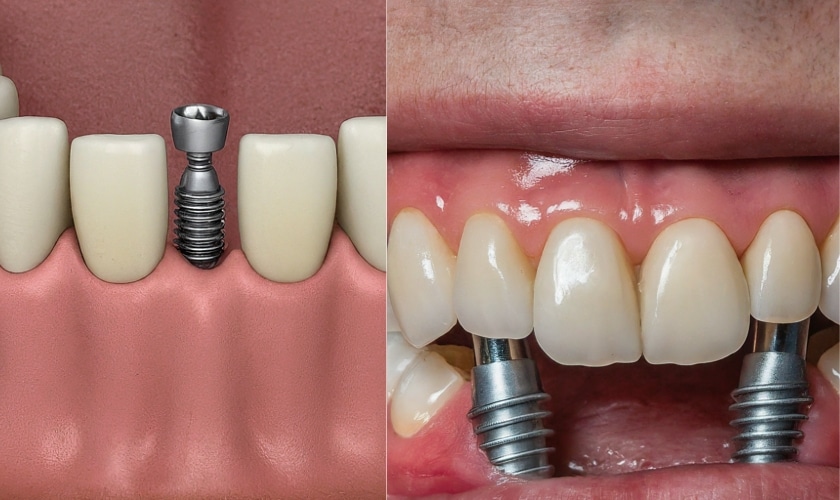
What are the Different Types of Dental Implants?
In this comprehensive guide, we’ll delve into the world of dental implants, exploring the different types available, their benefits, considerations for choosing the right option, and answers to common questions asked by patients. Whether you’re grappling with tooth loss or simply curious about the possibilities of modern dentistry, join us as we embark on a journey through the fascinating landscape of dental implants.
What Are Dental Implants?
Dental implants are revolutionary tooth replacement solutions that have transformed modern dentistry. These biocompatible titanium posts are surgically placed into your jawbone, acting as artificial tooth roots. Once implanted, they fuse with the jawbone through a process called osseointegration, providing a strong and stable foundation for dental restorations like crowns, bridges, or dentures.
Dental implants offer numerous advantages over traditional bridges and dentures, including:
- Enhanced Aesthetics: Implants look and function just like natural teeth, restoring a natural-looking smile.
- Improved Functionality: Implants allow you to eat, speak, and chew with confidence, mimicking the natural biting force.
- Durability: Made from high-quality titanium, implants are incredibly durable and can last a lifetime with proper care.
- Bone Preservation: Implants stimulate the jawbone, preventing bone resorption that often occurs with missing teeth.
- Improved Self-Confidence: A complete and healthy smile can significantly boost your confidence and self-esteem.
Types of Dental Implants
There are various types of dental implants available, each catering to specific dental needs and jawbone conditions. Understanding these options is crucial for making an informed decision with your dentist in Riverside, CA. Here’s a breakdown of the most common types of dental implants:
Endosteal Implants
Endosteal implants are the most widely used type, accounting for roughly 90% of all dental implant procedures. These implants are screw-like or cylinder-shaped and are surgically placed directly into the jawbone. They are ideal for individuals with good jawbone health and density.
Types of Endosteal Implants:
- Blade Implants: These thin, flat implants are suitable for situations with limited jawbone width.
- Cylinder Implants: These are the most common type of endosteal implant and offer excellent stability in most jawbone conditions.
- Tapered Implants: These implants have a wider base and taper towards the top, providing optimal stability in situations with softer bone.
Pros:
- Most widely used and versatile: Suitable for replacing single teeth or multiple teeth in various locations.
- Strong and stable: Offer excellent long-term success rates due to osseointegration with the jawbone.
- Natural-looking results: Support restorations like crowns and bridges that mimic natural teeth in appearance and function.
- Durable: Made from high-quality titanium, they can last a lifetime with proper care.
- Preserves jawbone health: Stimulates the jawbone, preventing bone resorption that often occurs with missing teeth.
Cons:
- Requires sufficient jawbone density: May necessitate bone grafting procedures if the jawbone is too thin or weak.
- Surgical procedure: Involves implant placement surgery, which requires healing time and may cause some discomfort.
- Cost: Generally more expensive than other tooth replacement options like dentures.
2. Subperiosteal Implants
Subperiosteal implants are placed on top of, rather than within, the jawbone. They are typically used for patients with insufficient jawbone height or those who cannot undergo bone grafting procedures. These implants consist of a metal framework placed on the jawbone ridge and secured with posts through the gum tissue.
Pros:
- Option for limited jawbone: Suitable for patients with insufficient jawbone height who cannot undergo bone grafting.
- Less invasive surgery: Placement may be quicker and potentially less uncomfortable than endosteal implants.
Cons:
- Less stable: May not be as strong and durable as endosteal implants, potentially requiring adjustments or replacement over time.
- Not suitable for all cases: Limited application compared to endosteal implants.
- May require specialized care: Cleaning and maintenance around the implant framework might require additional attention.
3. Zygomatic Implants
Zygomatic implants are a specialized type used in the upper jaw, particularly the back region where bone availability is limited. These longer implants are anchored in the strong zygomatic bone (cheekbone) and are suitable for patients with severe bone atrophy in the upper jaw.
Pros:
- Solution for severe bone atrophy: Ideal for patients with significant bone loss in the upper jaw, especially the back region.
- Immediate loading possible: In some cases, restorations like dentures can be attached to the implants immediately after placement.
Cons:
- Complex surgery: Requires a more specialized surgical procedure compared to other implant types.
- Longer healing time: Due to the complex surgery involved, healing time may be extended.
- Limited availability: Not all dentists have the expertise to place zygomatic implants.
4. Single Tooth Implants
Single tooth implants are the most common application, replacing a single missing tooth. A single implant is placed in the jawbone, followed by an abutment (connector) and a dental crown that replicates the appearance and function of the natural tooth.
Pros:
- Natural aesthetics and function: Replicates the appearance and function of a single missing tooth seamlessly.
- Preserves surrounding teeth: No need to modify healthy teeth for support, unlike traditional bridges.
- Easy to clean and maintain: Provides excellent access for flossing and brushing around the implant.
Cons:
- Cost: The cost of a single implant and crown can be higher than other tooth replacement options.
- Surgical procedure: Requires implant placement surgery, though typically less complex than procedures for multiple implants.
5. Implant-Supported Bridges
Implant-supported bridges are ideal for replacing multiple missing teeth in a row. Instead of relying on neighboring teeth for support like traditional bridges, implant-supported bridges are anchored by two or more implants placed strategically in the jawbone. This offers superior stability and eliminates the need to modify healthy teeth.
Pros:
- Stable and secure: Anchored by implants, these bridges offer superior stability and function compared to traditional bridges.
- Natural-looking: The bridge replicates the appearance of multiple missing teeth, restoring a natural smile.
- Preserves jawbone: Stimulates the jawbone and prevents bone resorption.
- Improved chewing: Provides excellent biting force for better chewing ability.
Cons:
- More complex procedure: Requires placing multiple implants, potentially extending surgery time and cost.
- Requires sufficient jawbone: May necessitate bone grafting if the jawbone is not strong enough for multiple implants.
6. Implant-Supported Dentures
Implant-supported dentures are a game-changer for individuals with complete tooth loss in one or both jaws. Traditional dentures can become loose and uncomfortable, impacting eating and speaking. Implant-supported dentures use a few strategically placed implants to secure the denture firmly in place, providing exceptional stability, function, and confidence.
Pros:
- Stability and confidence: Offers exceptional stability and security for dentures, eliminating slipping and discomfort.
- Improved chewing and speaking: Provides a more natural biting force for better chewing and clearer speech.
- Improved quality of life: Can significantly enhance a person’s quality of life by restoring chewing function and confidence in smiling.
Cons:
- More complex and costly: Requires placing multiple implants, potentially increasing treatment time and cost compared to traditional dentures.
- Surgical procedure: Involves implant placement surgery, though typically less invasive than procedures for full mouth reconstruction.
Choosing the Right Type of Implant
- Bone Density: The quality and quantity of available bone are crucial factors in determining the suitability of dental implant placement.
- Oral Health: Patients must have good oral hygiene and be free from gum disease to ensure the success of dental implant treatment.
- Overall Health: Certain medical conditions or lifestyle factors may impact the candidacy for dental implants, requiring careful evaluation by a dental professional.
- Treatment Goals: Understanding the desired outcome and expectations for dental implant treatment is essential for selecting the most appropriate option.
- Budget and Insurance Coverage: Patients should consider the cost of dental implants and whether they have insurance coverage or financing options available to help offset the expense.
FAQs
1. Do dental implants hurt?
The implant placement surgery typically involves local anesthesia and may cause some discomfort after the procedure. However, your dentist in Riverside, CA will prescribe medication to manage any pain.
3. How long does the dental implant procedure take?
The duration of the procedure varies depending on the complexity and the number of implants being placed. Simple single-tooth implant placement can take as little as 30 minutes, while more complex procedures involving bone grafting or multiple implants may require several hours.
4. How much do dental implants cost?
Dental implant costs vary depending on several factors, including the type of implant, the number of implants needed, geographic location, and dentist fees. In general, single-tooth implant treatment can range from $3,000 to $6,000, while implant-supported dentures can cost upwards of $15,000.
5. How long do dental implants last?
With proper care, such as regular brushing, flossing, and professional dental cleanings, dental implants can last a lifetime. The key to longevity is maintaining good oral hygiene and avoiding habits like smoking that can compromise implant health.
6. Am I a good candidate for dental implants?
If you are in good overall health and have healthy gums, you may be a good candidate for dental implants. However, a consultation with a qualified dentist in Riverside, CA is crucial to determine your suitability for implants. They will assess your jawbone health, discuss your treatment options, and answer any questions you may have.
Conclusion
Dental implants offer a life-changing solution for individuals with missing teeth. Understanding the different types of implants available empowers you to participate actively in your dental care journey. Schedule a consultation with a skilled and experienced dentist in Riverside, CA to explore if dental implants are the right choice for your unique needs. With proper planning and expert care, you can achieve a beautiful, functional, and confident smile that lasts.
